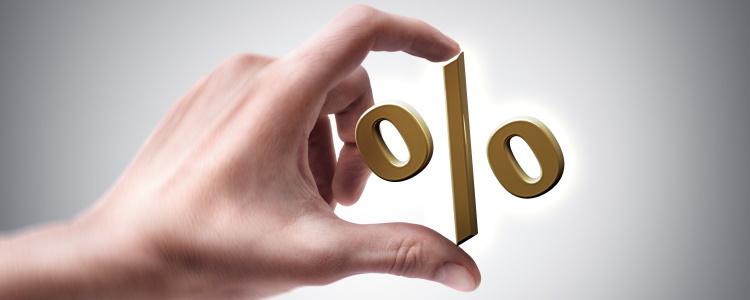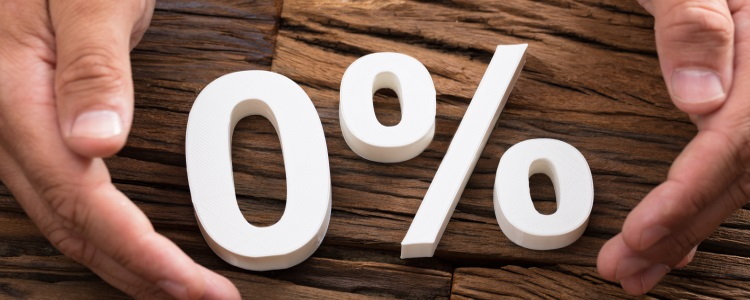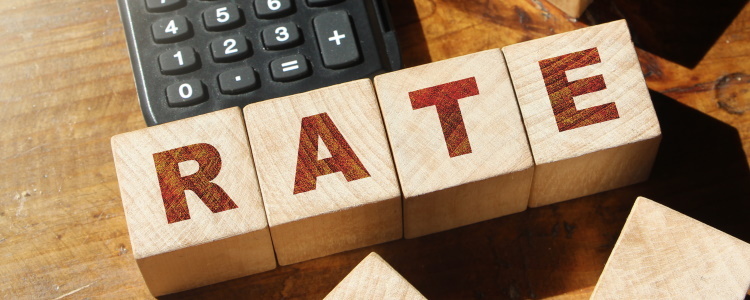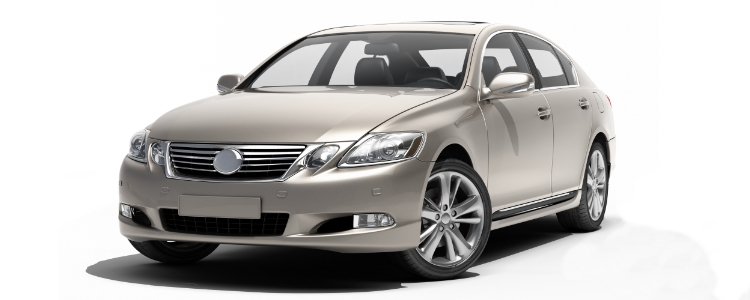When you have bad credit, you’re likely to only qualify for a higher than average interest rate on a car loan. However, being prepared is one key to auto loan success, and you can get ready by researching the average interest rates for bad credit car loans that are available to people in your credit score range.
What Is An Interest Rate?
An interest rate is what borrowers charge you to take out a loan. Essentially it's their fee for lending you money. Interest rates are expressed as a percentage, called an annual percentage rate, or APR. The higher the percentage, the more expensive your loan will be. Interest rates are based on a percentage set by how much the government charges financial institutions like banks, credit unions, and independent lenders for access to large sums of money. As the baseline interest rate rises, interest rates charged on loans go up. Right now, we're seeing higher-than-average interest rates, since the Federal Reserve has been raising rates to battle inflation. Lenders also base interest rates on risk, so the lower your credit score, the more risky a borrower you may seem, meaning a higher interest rate on your auto loan.
Average Interest Rates for Lower Credit Scores
Your car loan interest rates are primarily based on your credit score. Generally speaking, the higher your credit score is, the lower the interest rate you can qualify for. The opposite goes for borrowers with lower credit scores.
A credit score isn’t the only factor that influences your interest rate, however. The national prime rate – which has been on the rise – also makes a big impact on how high the average interest rate is. Additionally, the lender you’re working with, the vehicle you're financing, and how long of a loan term you choose can also impact what's available to you.
According to Experian's State of the Automotive Finance Market report from the fourth quarter of 2022, the average bad credit auto loan interest rates on vehicles are:
| FICO Credit Score Range | Experian Classification | Average Used Car Interest Rate | Average New Car Interest Rate |
| 300 - 500 | Deep Subprime | 20.62% | 13.42% |
| 501 - 600 | Subprime | 17.46% | 10.79% |
| 601 - 660 | Nonprime | 12.08% | 8.12% |
How Your Interest Rate Affects Your Bad Credit Auto Loan
When you’re dealing with the higher interest rates that come with less than good credit, it can bump up the cost of the car you’re financing. This is because interest accrues daily based on the balance of your auto loan. The higher the interest rate, the more you’re going to pay in interest charges. You'll have a higher interest rate, which in turn means you have a higher APR on your loan. An APR and an interest rate are very similar, but it's important to know the difference when you're looking for a lender. An APR will give you a more accurate calculation if you're trying to figure out what you'll have to pay in the long run since it includes taxes, surcharges, and other fees your loan may incur.
Let’s look at an example of how the interest rate you qualify for impacts the overall cost of your car loan. The difference in total cost between an 8.12% interest rate for decent credit on a new car, and a 20.62% interest rate on a used car for the lowest credit tier really shows. When you have a credit score in the nonprime range, you end up paying a $14,563 difference in interest charges alone. This is why choosing the shortest loan term you can afford is a good idea when you have compromised credit. In this example, we’re using a loan term that’s becoming increasingly popular due to the rising cost of auto financing. A longer loan term lowers the monthly payment but raises the overall cost of your loan. As you can see, lower credit could potentially mean paying more for a used car. (We assume $0 down in this example, your results will vary.)
- $25,000 Loan
- Seven Year Term
- $0 Down Payment
| 84 Months | Monthly Payment | Interest Paid | Total Cost |
| 8.12% Interest | $391.15 | $7,857 | $32,857 |
| 20.62% Interest | $564.53 | $22,420 | $47,420 |
Since you’re likely to see these higher rates with poor credit, one way you can lower the overall cost of your car loan is by opting for a shorter loan term. If we assume the same $25,000 financed but use a shorter loan term, you save money overall by lowering the interest charges. The shorter your term, the fewer interest charges you're going to pay. Knocking your loan term down just one year will save you $1,192 in interest charges for decent credit, while deep subprime borrowers with the lowest credit scores save $3,656. Knocking your loan term down by two years will make your savings even greater, as you can see in the example below.
- $25,000 Loan
- Five Year Term
- $0 Down Payment
| 60 Months | Monthly Payment | Interest Paid | Total Cost |
| 8.12% Interest | $508.35 | $5,501 | $30,501 |
| 20.62% Interest | $671 | $15,260 | $40,260 |
What is a Bad Credit Car Loan?
A bad credit car loan is specifically designed for those with credit scores below 600. These loans are offered by many institutions and come with a few downsides like higher interest rates and larger down payment requirements. Just because you have banged up credit doesn't mean you can't find financing, it just means that getting an auto loan takes a little more work. It pays to be prepared before you start shopping for an auto loan.
Getting a Bad Credit Auto Loan
When you attempt to get a loan with bad credit or a low credit score you will find yourself facing different rates and terms than someone with a better credit score. To make the process of finding financing easier, it's a good practice to be prepared before you start the auto loan process. Knowing what the lender expects can smooth over many bumps in the road.
- Know your credit score – When you know what your score is you can research the average interest rate for people with similar scores, and this gives you negotiating power when it comes to what the lender is offering you, especially if they're aiming for the higher end of the scale.
- Prepare your paperwork – Lenders ask for a lot of documents when you apply for a car loan. Things to have on hand are your check stubs for the last 30 days, a copy of your driver's license, a bill or bank statement in your name that's come to your address, a list of personal references who don't live with you, and proof of a working phone in your name. These will fulfill your requirement to prove income, employment, and residency. References and proof of a working phone allow the lender to contact you should the need arise.
- Shop around for the right lender – When you have bad credit it's important to know your options when getting a loan. Each lender has their own set of requirements and rates, so checking your options means getting the lowest rates you can. Also, know that there is more than just one kind of lender available for bad credit borrowers. Banks are often the toughest to get a loan with if you have poor credit, while BHPH dealers may be more willing to lend. Be careful though, many forms of loans, like BHPH loans come with much higher interest rates than others. Your options for bad credit car loans often include the following:
- Banks - It can be a hard sell to get a loan through a bank if you have less than perfect credit. Many banks don't lend to borrowers below a certain credit limit, but each bank has its own regulations. Banks tend to have some of the lowest interest rates on their loans, but loans tend to be reserved for borrowers with good credit.
- Credit Unions - It can be a bit easier to finance through a credit union if you're a member. Credit unions are known for their lower rates and being able to pass savings on to their members. Last year, credit unions were the biggest lender when it came to auto loans, according to Experian's State of the Automotive Finance Market for the fourth quarter of 2022.
- Subprime lenders - These lenders work through special finance dealerships and tend to be the easiest way to finance when you're a borrower with poor credit. By working with a dealer they can shop your application to multiple lenders to see who can get you approved.
- Online lenders - Online lenders often take the wait out of lending by offering instant approval; you'll still need to prove all the information you enter online, so be prepared with your paperwork. Many online lenders offer bad credit car loans.
- Captive Financing - Some captive finance companies, the lending arm of specific automakers, offer loans to borrowers with lower credit scores. Some companies that are known to finance bad credit are Ford, Chevy, Honda, Toyota, Kia, and Hyundai. Captive lenders have the power to give deals that other lenders can't., but again, better offers go to those with better credit scores.
- BHPH Dealerships - These lenders are the dealers and finance you themselves, so there's often less weight placed on your credit score. Interest rates and down payments are typically higher at a BHPH dealer than at a traditional dealership.
Ways to Minimize Interest Charges on a Bad Credit Car Loan
Besides shortening your loan term, there are several other ways where you could save money in interest charges. Here are some suggestions:
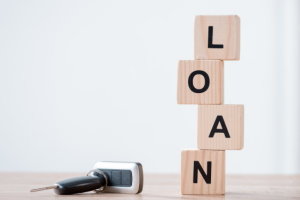 Make a down payment – Down payments make a difference in the amount you pay in interest charges since you’re reducing the amount of your loan right from the start. The more you pay upfront, the more you save overall in interest.
Make a down payment – Down payments make a difference in the amount you pay in interest charges since you’re reducing the amount of your loan right from the start. The more you pay upfront, the more you save overall in interest.- Stay off the “trade-in treadmill” – If you trade in a vehicle with negative equity, a lender may allow you to roll it from your previous loan into the new one. This increases the amount of the new loan, leaving you with a bigger loan balance on which interest can be charged. A best practice is to wait until there is equity in your car before trying to trade it in.
- Pay off your loan faster – A surefire way to save money in interest charges is to pay off your loan faster and reduce the amount you owe on the loan. The faster you can reduce your auto loan balance, the more money you save.
- Rate shop – Exploring your options is a good way to start off your next loan with the lowest interest rate available to you. Don't just go for the first loan you find, apply with multiple lenders in a two-week timeframe to see what is available to you. This two-week window is known as a rate shopping window, and all inquiries for the same type of loan will only count against your credit once.
- Get a cosigner – Having a cosigner available with better credit than you can help to ease some of your lender's worries, and help to get you a better interest rate. Keep in mind that a cosigner is only lending you their credit score and you must qualify for the rest of the terms of the loan on your own.
Improve Your Credit for a Lower APR
Just because you have bad credit doesn’t mean you can't get a car loan. You should be prepared for a higher interest rate, but you can always reduce interest charges using the above strategies. The good news is that you can get an auto loan and rebuild your credit score at the same time. Getting a bad credit car loan allows you many years to make on-time payments and build your credit history and therefore, your credit score. This means that by the time you're ready for another auto loan, your credit may have risen enough to allow you to qualify for lower interest rates.
In the meantime, it's a good idea to improve your credit as much as you can so that it's easier to get an auto loan in the first place. There are many ways you can improve your credit in order to help you get a car loan, but it will take a little time and some financial discipline. Some tips include:
- Making sure all your bills are paid on time and in full shows a positive payment history which is the biggest factor in improving your credit, making up 35% of your score.
- Avoid unnecessary credit applications, the more your credit is checked the more it can drop. Only apply for loans and credit lines when absolutely needed.
- Pay down your debts, starting with the smallest amounts, and work your way up from there.
- Seek debt consolidation for your larger debts that can combine them into one monthly payment, sometimes with a lower interest rate.
- Review your credit reports for errors, sometimes things can bring down your credit score without your knowledge, like debts that are not reported as paid.
- Keep your oldest credit lines open, even if they're paid off. They help increase your length of credit history which makes up 15% of your credit score.
- Keep your credit utilization ratio below 30% of your credit limits. Lenders like to see that you don't max out your credit cards or carry a rolling balance. The amount you owe in debt makes up 30% of your credit score.
- Improve your credit mix with a balance of personal or auto loans and credit cards, credit mix makes up 10% of your credit score.
With an improved credit score, it will not only be easier to get a bad credit car loan, but it will be easier to get a better interest rate, too.
